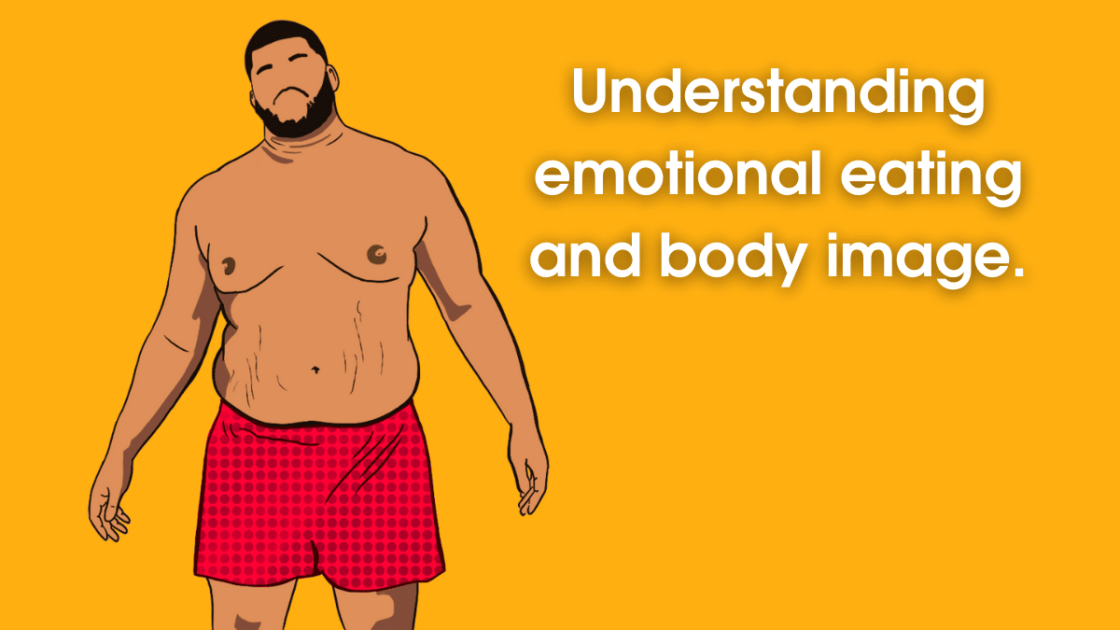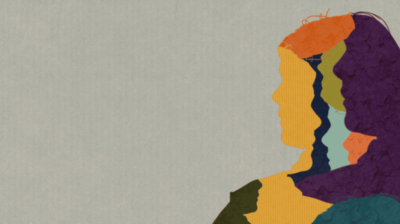Understanding emotional eating and body image
Richard details his experience of emotional eating and it’s impact on body image.

TW // This article references eating disorders. Bodywhys helpline: 01 2107906 or [email protected]
I have struggled with emotional eating and my body image. I would eat a lot of food to tame my emotions, but then what would always follow was a pattern of self-imposed starvation, self-hatred, and self-punishment for failing to reach the ‘ideal image’ of my body I had in my mind.
The anxiety of one fueled the other in an endlessly terrible cycle, a struggle which I often fought silently and in isolation. Almost everyone is familiar with comfort eating – it is often visible, joked about, and occurs within a certain timeframe. Serious emotional eating, however, is not greatly understood.
What exactly is emotional eating?
At its core, emotional eating is the “tendency to eat in response to positive or negative emotions.” The act of emotional eating is often paired with negative associations, but it can also occur with positive emotional changes. This would not be referring to the act of physically eating at events or activities that are seen as positive, like of celebrations, birthdays, or traditional holidays, festivities, or rituals.
Rather, it means that both negative or positive changes in a person’s well-being or emotions can trigger the desire to eat as a form of comfort when negative or positive feelings may be overwhelming. Whether it is moving to a new school, starting a new job, beginning a new relationship, having an argument, getting exam results, anticipating events, and so on.
It is this form of emotional eating which is often isolated in nature, and far more invisible, and often greatly misunderstood. Whilst it is safe to say that perhaps most people occasionally emotionally eat, it is important to understand how this particular coping mechanism can be made worse by the addition of anxiety, depression, and a multitude of eating disorders, including BED (Binge-eating-disorder) and Bulimia.
The process of emotional eating has nothing to do with hunger itself, or an excessive desire to eat. A person’s outward appearance, especially for someone who is in a larger body, is often chalked down to some failure of that individual on part of faulty willpower or a faulty character.
This incorrect and overly simplistic correlation between being in a larger body and the consumption of food can be enormously damaging. The implications for misunderstanding it has consequences for not only those who emotionally eat, or for those who seek out other methods of coping.
Nobody is overeating for overeating’s sake, or out of some moral failure, just as someone who self-harms is not seeking pain, but is rather seeking an escape or a way to cope.
A search for inner peace is central to coping, and only when it can be understood in this light, can we effectively communicate with our friends, families, partners, and colleagues about why we cope the way we do, and how it affects our health.
Emotional eating cycle
One summer, not long after having started secondary school, I vividly remember declining an invitation to go to the beach with a childhood best friend; the fear of having to lift my shirt to swim, or to even be anywhere near where there may be an expectation to do so, was overwhelming.
The form and shape of your body are some of the most visible and immediately noticeable traits of a person. To be constantly aware and hyper-alert over how my body is perceived in the world is exhausting – I am constantly adjusting my clothing, conscious of my movements, and worrying about how I look to others.
The feelings of thinking that I am “clunky” and “disgusting” are so overwhelming to the point that it becomes second nature to decline things that I may perceive to make my “overweightness” be a burden to anyone.
This does not even begin to express how difficult it is when someone deliberately mocks how I look; I often recall a time in secondary school when someone would attempt to make me do a certain facial gesture as a prank in order to try and have fat on my body be emphasised.
This shows how embedded the powerful and difficult feelings surrounding body image are; it is an awareness that is attached to you at every living moment. In this way, eating as a way to cope creates an endless cycle.
Being in a larger body is a very visible thing, and it is certainly no surprise that individuals who are in larger bodies can sometimes have a difficult relationship with body image, especially in a world where we have an impossible ‘ideal’ to compare ourselves to – or be compared to by others.
Feeling overwhelmed and want to talk to someone?
- Get anonymous support 24/7 with our text message support service
- Connect with a trained volunteer who will listen to you, and help you to move forward feeling better
- Whatsapp us now or free-text SPUNOUT to 50808 to begin.
- Find out more about our text message support service
If you are a customer of the 48 or An Post network or cannot get through using the ‘50808’ short code please text HELLO to 086 1800 280 (standard message rates may apply). Some smaller networks do not support short codes like ‘50808’.






